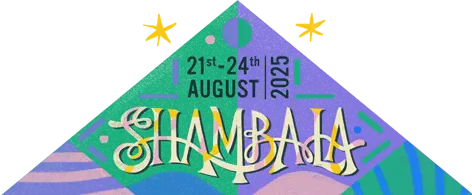“Another world is not only possible, she is on her way. On a quiet day, I can hear her breathing.” Arundhati Roy
I feel her. Do you? For those of us who work tirelessly in crafting or campaigning for what Charles Eisenstein refers to as ‘the more beautiful world we know in our hearts is possible’, life can sometimes feel frustrating and progress painfully slow. It is almost easier to be fatalistic, to resign oneself to the inevitability of the status quo, to accept that real change isn’t possible; to be cynical. But comfortable cynicism is in itself an act of obedience, arguably an immoral one, which allows the carelessness and callousness of the system to rumble on unchallenged. It is up to us to take action: ‘Create or be created’ as Jonathan Kay, The Imaginarium regular and champion of fools, so eloquently puts it.
We are the people we’ve been waiting for. We too easily forget that almost every social, environmental and economic victory in our lives has been fought for and has involved sacrifice, determination and commitment. From the Jarrow March for worker’s rights and the Suffragette Movement for female emancipation, to the myriad green campaigning groups who have also put their bodies on the line to confront the juggernaut of runaway capitalism that threatens to push humanity into an ecological corner of no return. These battles have laid the foundations of modern liberal democracy – but they were hard won.
In our ‘end of history’ comfort and complacency we can lose our edge, the fire in our bellies, the desire in our hearts; we can undercut the heights to which our spirits might soar. When we accept the cosy consensus, the ‘I’m all right Jack’ mentality, we fail to empathise with our fellow humanity and the wider, interconnected, interdependent family of plants and animals with whom we share our one and only planet.
This cognitive and optical delusion of separation is pernicious; it suggests that we are somehow apart from each other and the fantastic fertile world that sustains us. It permits us to treat other people and the natural world in an exploitative, utilitarian fashion. Our neighbours and environments are not ‘resources’ they are family. We are all passengers on what sustainability guru Buckminster Fuller called ‘Spaceship Earth’.
We must navigate the ‘progress traps’ we have produced for ourselves – those circumstances that fundamentally undermine our potential for future progress. Our pursuit of cheap, available, abundant energy in the form of fossil fuels for example, which has generated the carbon emissions driving climate change. In light of these traps we are not blindly opposed to progress, but we are opposed to blind progress. We need to open our eyes to real and emerging possibilities: the potential of collaborative, collectively owned and generated renewable community energy, which can literally mean power to, by, and for the people.
We must also honour the past. We did not get here with bad intention. We have built an extraordinary world around us, worth celebrating, but at what cost? It is perhaps almost inevitable that a curious intelligent species, such as ourselves, will butt up against its planetary limits. What is important is how we react when this happens and our context changes. We can’t be in denial of this reality. Instead we must once again imagine better, and make it happen.
We are facing an existential crisis, not for the planet but for us. The Earth has been here for over 4.5 billion years… and it will be here long after we’ve gone. We have been physically ‘planetary’ for 40,000 years, since our ancestors migrated out of Africa and traversed the globe. It’s now time for us to become truly planetary in consciousness and perspective.
Since we sat around the first campfires we have told stories. They are the libraries of humanity, the most powerful organizing principle we have ever created. They allow us to make sense of the world, our relationships with each other and the planet that sustains us. Our current stories, of infinite economic growth on a finite planet, inevitable progress and the primacy of economy over ecology, are unraveling. It’s time to weave a new narrative that works for the many, not the few.
For the first time in a hundred millennia we have the chance to describe a new inclusive story – a common narrative for one people, on one planet. It has the potential to be the most wonderful, inspiring, new, ancient, true story ever told.
Buddhist legend states that in times of great darkness the Shambala warriors of the light will return to guide the world back onto a better path. Our purposefully hedonistic adventures in Utopia are a hugely positive step in the right direction: here, in these temporal and alternative communities, we can explore new ways of relating to each other and the environment. As Bill and Ted put it, on their adventure, ‘Be excellent to each other and party on dudes.’
This is our adventure. Our new story starts here…


